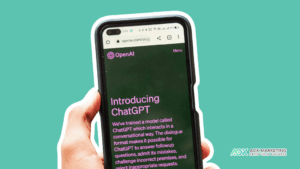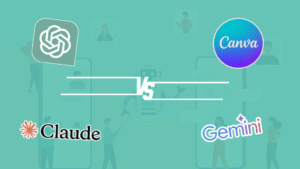In an age where consumers trust each other more than they trust brands, user-generated content (UGC) has become one of the most powerful tools in digital marketing.
But what exactly is user-generated content—and why does it matter?
In this article, we’ll break down what UGC is, why it works, examples of it in action, and how your brand can use it to drive more engagement, boost credibility, and increase conversions. If you want your content strategy to succeed in 2025, UGC needs to be a part of it.
What Is User-Generated Content?
User-generated content (UGC) refers to any content—text, images, videos, reviews, or social media posts—created by people, not brands. These are real experiences, shared voluntarily by users, fans, or customers about a product, service, or brand.
It’s content your audience creates for you.
Examples include:
– A customer tagging your brand in an Instagram post
– A video review of your product on YouTube
– A TikTok showing how someone uses your service
– Testimonials on your website
– Comments or reviews left on product pages
UGC is raw, real, and authentic—making it more influential than any polished ad campaign.
Why UGC Matters in 2025
Trust is the new currency in digital marketing. And nothing builds trust quite like real content from real people.
Here’s why user-generated content matters:
– Builds credibility: Consumers trust peer reviews more than branded content.
– Drives engagement: UGC is often more relatable and interactive than traditional marketing.
– Boosts conversions: Shoppers are more likely to buy when they see others enjoying the product.
– Strengthens community: Encouraging content from your audience helps build loyalty and connection.
– Provides social proof: It shows your brand is not only active but loved by real users.
In short, UGC turns your customers into your best marketers—without spending a cent on production.
Types of User-Generated Content
UGC isn’t one-size-fits-all. Depending on your brand and audience, it can take on several forms:
1. Social Media Posts
When customers post about your brand—intentionally or organically—it creates buzz and visibility. Reposting user photos or videos (with permission) can fill your feed with authentic content.
2. Reviews and Testimonials
Written or video reviews on websites, Google, or platforms like Yelp and TripAdvisor help potential customers make decisions with confidence.
3. Product Unboxings
Influencers or regular users showing product deliveries and first impressions give potential buyers a real look at what they can expect.
4. Q&A and Forum Discussions
Comments, forum threads, or community discussions on platforms like Reddit or Quora can shape how your brand is perceived—positively or negatively.
5. Branded Hashtag Campaigns
Encouraging users to post content under a specific hashtag helps you collect and track valuable UGC easily.
Benefits of UGC for Your Brand
Implementing a strong UGC strategy can lead to major wins:
– Higher engagement rates: People trust and interact more with content created by their peers.
– Cost-effective content creation: Let your audience fuel your content pipeline.
– SEO improvements: UGC adds fresh content and keyword-rich text to your site via reviews or comments.
– Stronger brand loyalty: Featuring your customers’ content creates a sense of inclusion and community.
– Expanded reach: Each piece of UGC introduces your brand to new followers and networks.
How to Encourage User-Generated Content
Want more UGC? You have to make it easy—and rewarding—for users to contribute.
1. Create a Branded Hashtag
A short, catchy hashtag encourages users to post their experiences while giving you a way to track their content.
2. Run Contests or Giveaways
Offer a reward for the best video, review, or photo featuring your brand. This drives both participation and buzz.
3. Ask for Reviews
Follow up with customers post-purchase and encourage them to share their thoughts, photos, or experiences.
4. Feature Customers Publicly
Reposting UGC on your website, Instagram, or email newsletters shows appreciation and motivates others to contribute.
5. Collaborate with Micro-Influencers
They often have tight-knit, loyal audiences and can generate highly authentic UGC at scale.
Best Practices When Using UGC
Before you repost anything, keep these rules in mind:
– Always ask for permission. Even if someone tags you, get consent before sharing their content.
– Give credit. Tag or mention the original creator to show appreciation and build trust.
– Stay on-brand. Choose UGC that aligns with your brand’s tone, message, and values.
– Be inclusive. Highlight diverse users and content to represent your entire audience.
Final Thoughts
User-generated content is more than just a marketing trend—it’s a necessity in 2025. People crave authenticity, and UGC delivers it in a way no ad campaign ever could.
So the next time someone posts about your brand—celebrate it. And better yet, share it.
Your best content might already be out there—you just need to shine a spotlight on it.
About The Author
Jana Legaspi
Jana Legaspi is a seasoned content creator, blogger, and PR specialist with over 5 years of experience in the multimedia field. With a sharp eye for detail and a passion for storytelling, Jana has successfully crafted engaging content across various platforms, from social media to websites and beyond. Her diverse skill set allows her to seamlessly navigate the ever-changing digital landscape, consistently delivering quality content that resonates with audiences.






